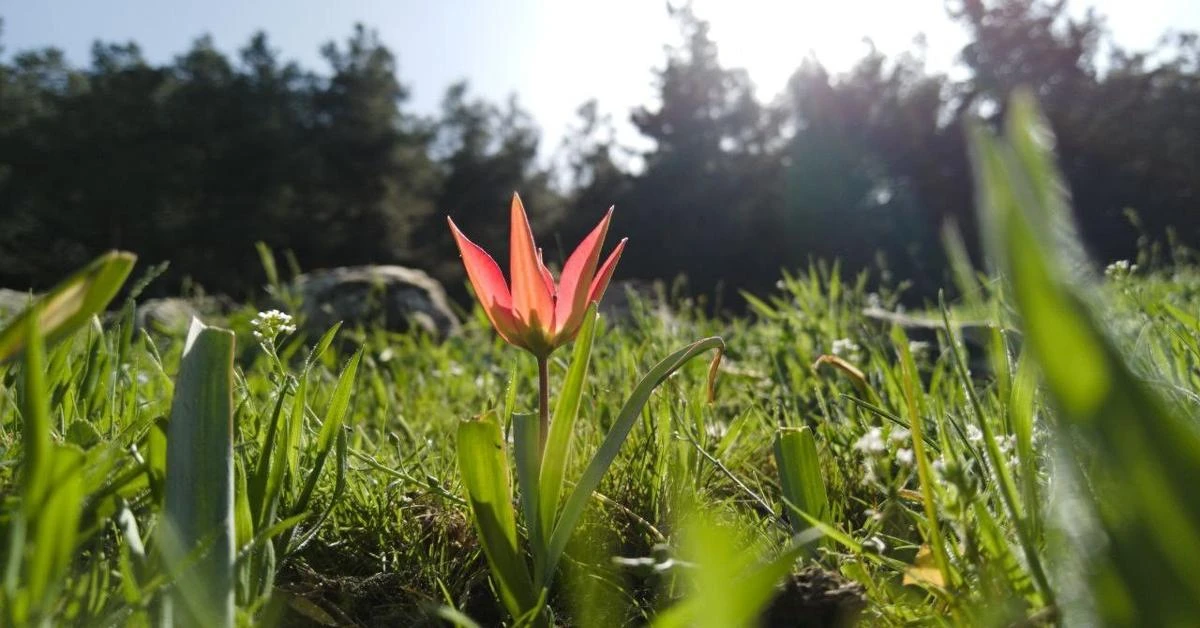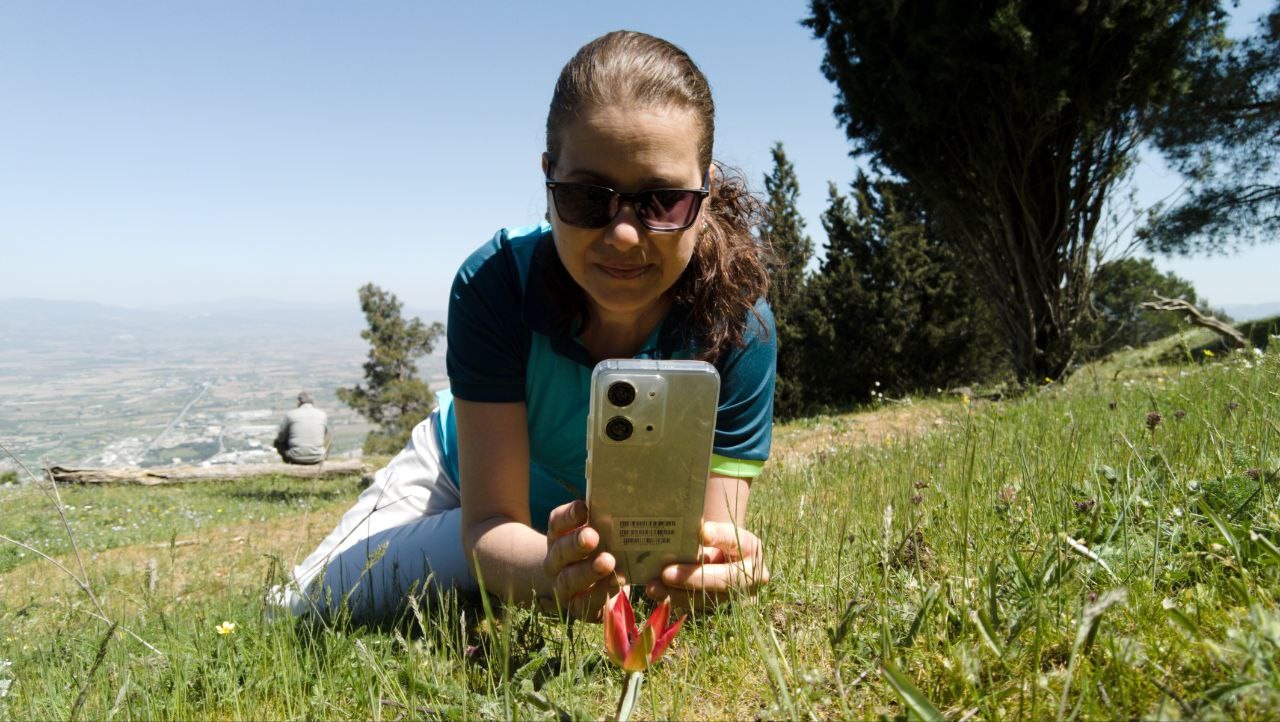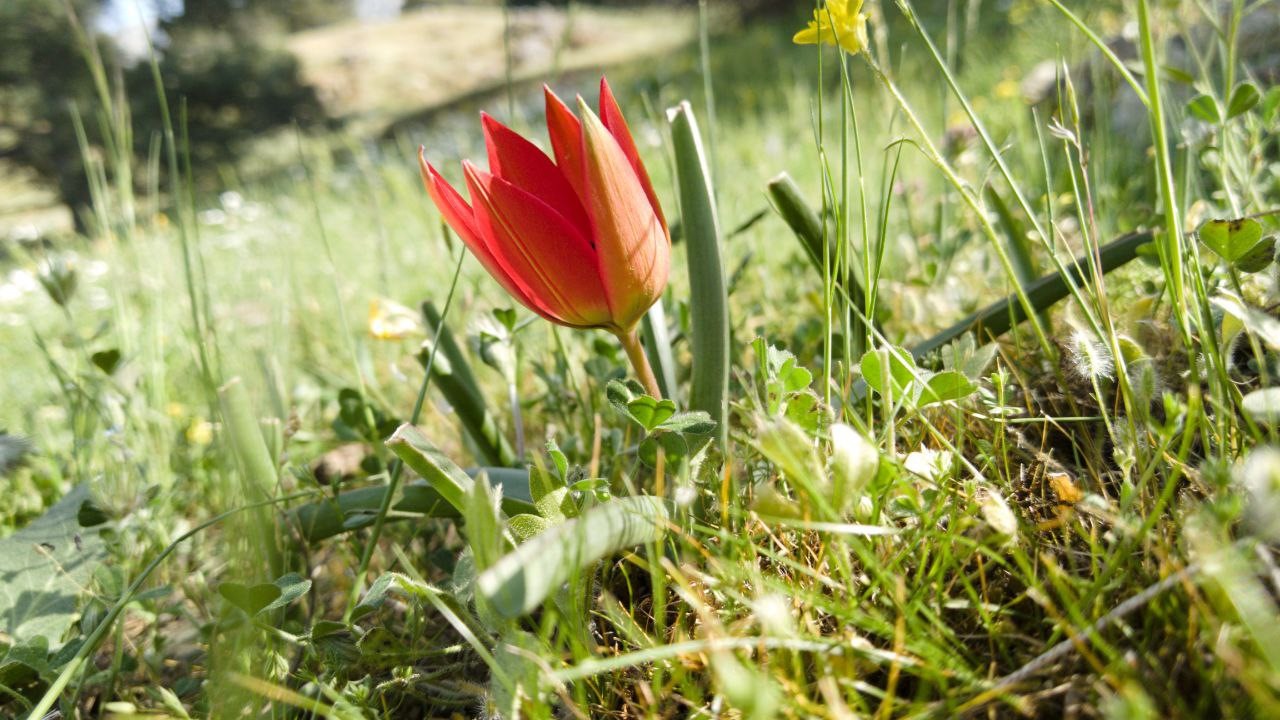Nearly $12K fine for picking once-blooming tulips

The Manisa Tulip, which grows in Spil Mountain National Park, one of the world’s most important centers for endemic plant species diversity located between Manisa and Izmir provinces, begins blooming as the weather warms up
The first Manisa Tulip of the year started to bloom on the foothills of Spil Mountain National Park, which hosts more than 120 types of endemic plants at an altitude of 1,517 meters (4,977 feet) in the Sehzadeler district of Manisa. The tulips blooming on the road leading to Spil Mountain National Park created a visual feast for nature and photography lovers.
Hamdi Oklu, who went to Spil Mountain National Park for a picnic with his family, said that they saw the early Manisa Tulips starting to bloom on the roadsides near the observation terrace and stopped to take photos.

Noting that they know that they bloom in the last week of April in the region close to the summit, Oklu said, “While climbing the mountain for both picnic and to leave food for wildlife, we saw early tulips blooming on the roadside in the region close to the observation terrace. We stopped to take photos of the first tulips of the year. We know that the penalty for plucking tulips, which are among the species that need to be protected, is very high. Soon the tulips in the protected area toward the summit will also bloom.”
Tulip plucking incurs $11.9K fine

Manisa Tulips, which have started to bloom early on the slopes of Mount Spil, will be seen all over the mountain in the coming weeks.
Source: Newsroom



